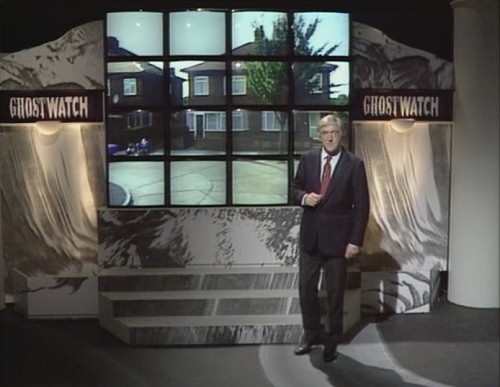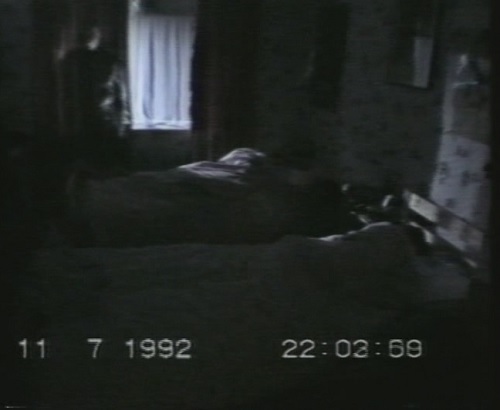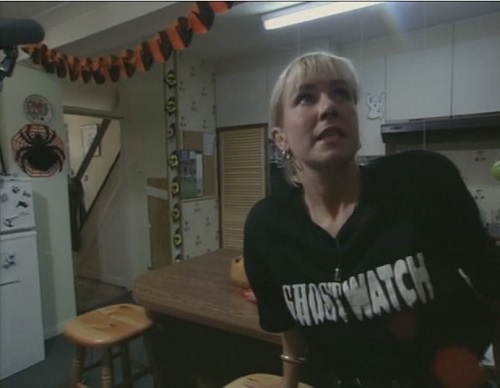
For Halloween this year I thought I’d so something a little different — I got my hands on a copy of an infamous British TV horror special and decided to write a review.
For those unfamiliar with the show, Ghostwatch is a 1992 Halloween TV horror special from BBC. It never aired in the US, nor has it ever been made available to US viewers through legal means (unless you have a region-unlocked DVD player.)
The TV special scared many viewers at the time because it masqueraded as a live, non-fiction TV show featuring hosts familiar to BBC viewers. You can read more about the effects the show had on its audience over on Wikipedia.
I don’t want to spoil it for you if you haven’t seen it, so I’ll just give you a brief rundown. The 90 minute show alternates between a talk show host with a paranormal investigator, and two on-scene reporters investigating an allegedly haunted house where two girls live with their single mother. The talk show segments include everything from “live phone calls” to interviews with a skeptic from New York.

The type of horror leans toward the subtle variety one would expect from BBC. Think Doctor Who and you’re not far off. There’s no terrifying violence or jump scares here. As an American viewer, I’d say the closest analog would be if The Blair Witch Project had been a TV special hosted by Geraldo Rivera.
One minor spoiler: the ending won’t be a surprise to you if you’ve seen The Onion’s Halloween episode of In The Know. For all I know The Onion could have been making an homage to Ghostwatch.
Overall I can say it’s entertaining, but twenty four years later it feels very dated. TV shows don’t do call-in segments anymore, for example; instead they read responses on social media. But the biggest problem isn’t the format, it’s the storytelling. The haunting theory presented toward the end casts the ghostly villain as two lazy stereotypes; mentally ill and transgender.
I don’t mean to say that a mentally ill transgendered person returning as a ghost couldn’t be compelling, but Ghostwatch doesn’t make a case for this. Instead these attributes only serve to advance the story while neglecting any potential motivations behind the ghost’s actions.
The horror aspect also deserves some critique, as the host segments tend to deflate the sense of dread building up in the on-scene segments. For the most part the tension built up inside the haunted house dissipates once the show returns to the comfort and safety of a TV set.

There are two paths Ghostwatch could have gone that would have made it a more timeless classic. One, it could have played its cards closer and have never tried to explain away the details of the haunted house. Two, it could have gone the opposite route and explored the alleged ghost in more depth.
That said, I could easily imagine the show doing well in the US market in the early 90’s when similar “truth seeker” reality shows were popping up on Fox, cable TV, etc. But stripped of its cultural context, the show seems more enjoyable for its curious novelty factor than its ability to scare.
Verdict: B-/C+
Good for: People curious about unusual television history, those looking for a mildly scary 90 minutes of television.
Not good for: Those bored by typical horror tropes, anyone seeking modern horror.
